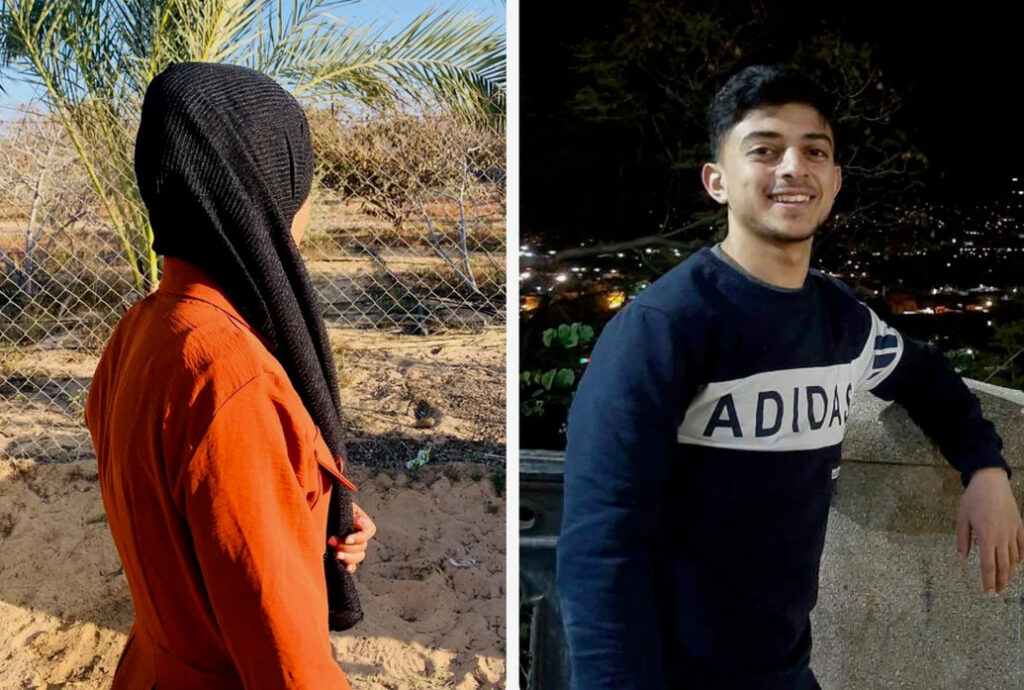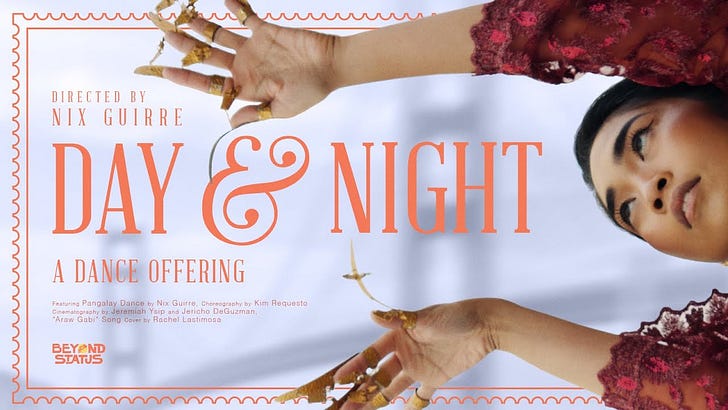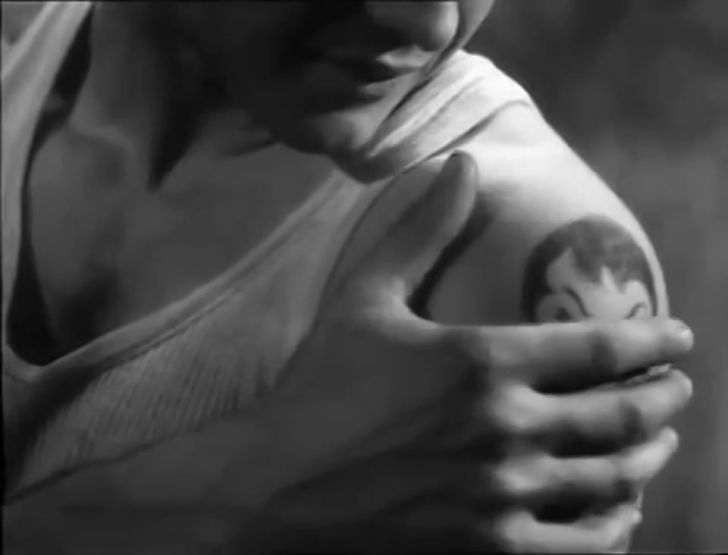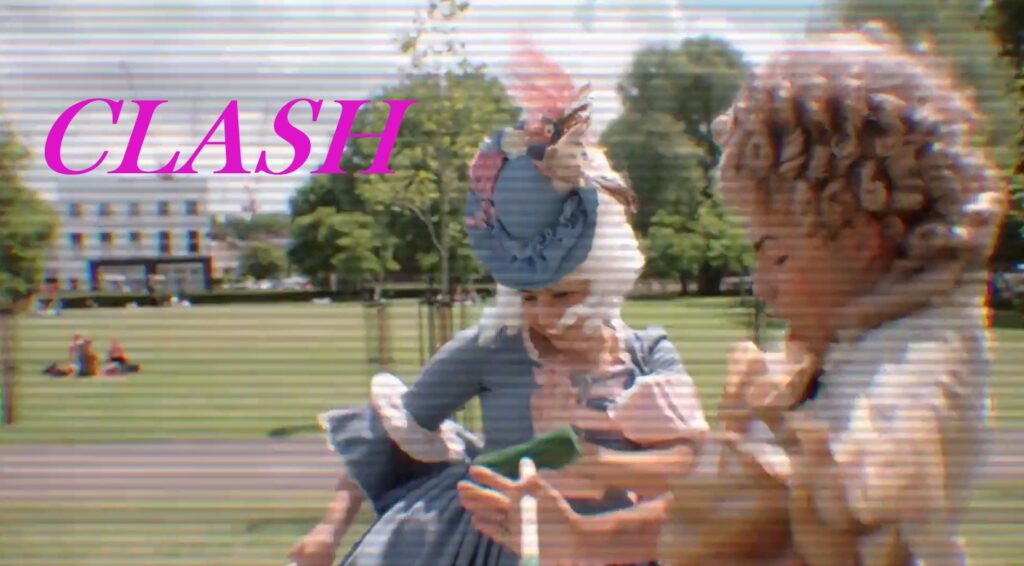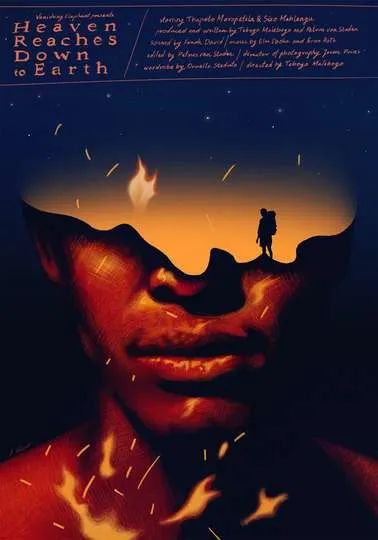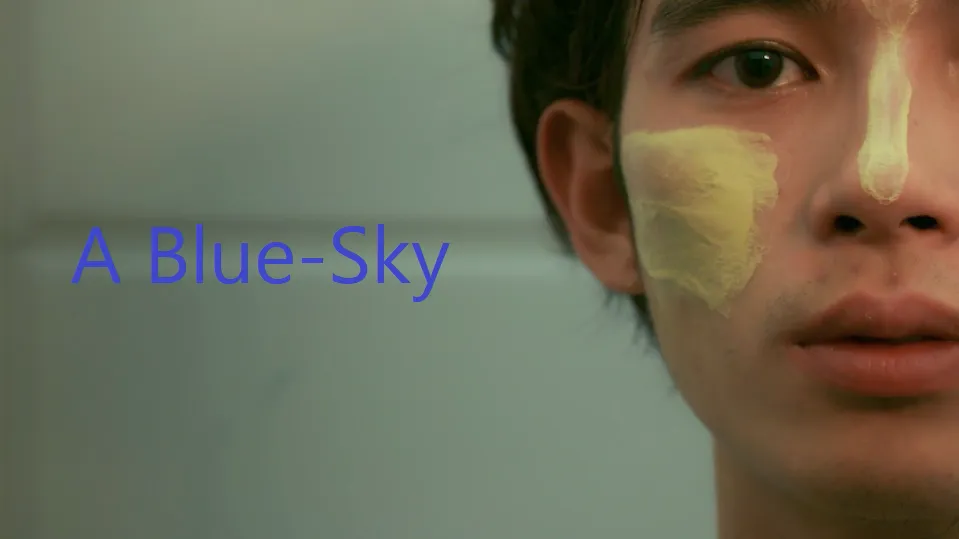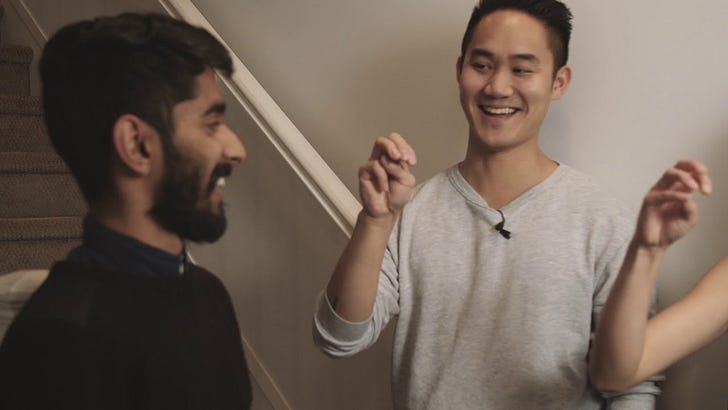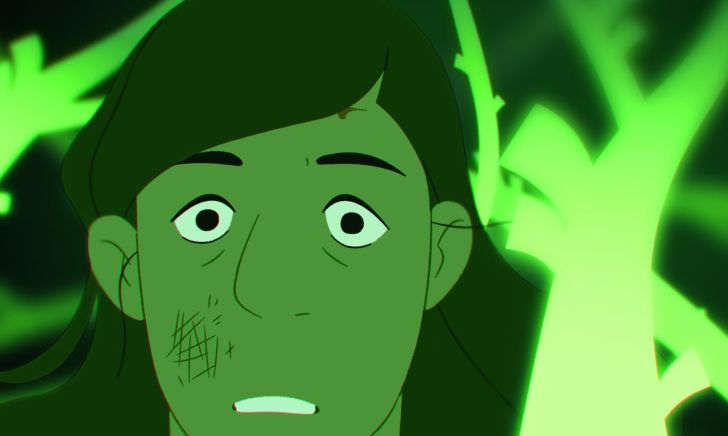Three docu-shorts and one narrative short depict queer and trans legacies of protest
My earliest experiences in queer spaces, as a teenager, were those formed around protest and activism. At the time, living on the west coast of the United States in the early 2000s, my high school gay-straight alliance club was mostly organizing around marriage equality. I’ve always been an activist, but joining those protests was part of what helped me understand myself as queer (and later as agender as well). So that activism has always been central to forming my understanding of my sexuality and gender, as well as finding my queer and trans communities.
To me, queerness and transness as inherently political, because they unsettle how we understand gender and sexuality, which in turn disrupt the very foundations of power and patriarchy. We can fight oppression in many different ways, but this week’s films focus on those who put their bodies and selves into protest and action in public spaces, usually to protect their communities. By doing so, these films act as a form of protest themselves.
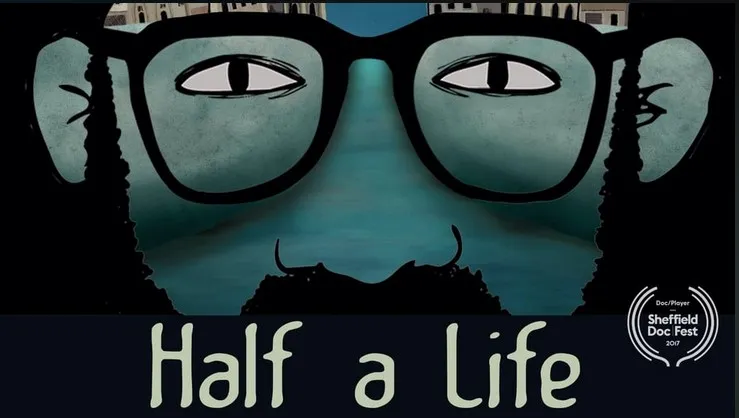
“But actually I won’t feel comfortable anywhere other than Egypt. The country that I speak its language, the country I have lived in, and I share its memories.”
نصف حياة | Half a Life, directed by Tamara Shogaolu, is very difficult for me to watch. Narrated by a gay activist in Egypt that Shogaolu refers to as Adam, the horrors it depicts, of queer youth and adults in Egypt facing hate violence and police brutality, are still all too real and impactful even when rendered in beautiful animation. It’s clear, too, that Shogaolu didn’t intend the animated style to offer any kind of emotional distance for the viewer: midway into the film, live footage from the 2011 Egyptian revolution is cut in, showing protesters being beaten and gunned down by the police and military.
Despite the pain I’ve felt every time I’ve watched the film, it’s been worth it to hear about Adam’s struggles and hopes through his own voice. “Like Adam, many Egyptians love Egypt, while they are struggling against the very backlash that many involved with the 2011 revolution feared,” said Shogaolu in an interview. “Our team is devoted to sharing Adam’s story, and it is our hope that this film can embolden and contribute to the movement for gay rights taking place in Egypt right now.”
The film also the first in a series directed by Shogaolu called Queer in the Time of Forced Migration.
نصف حياة | Half a Life
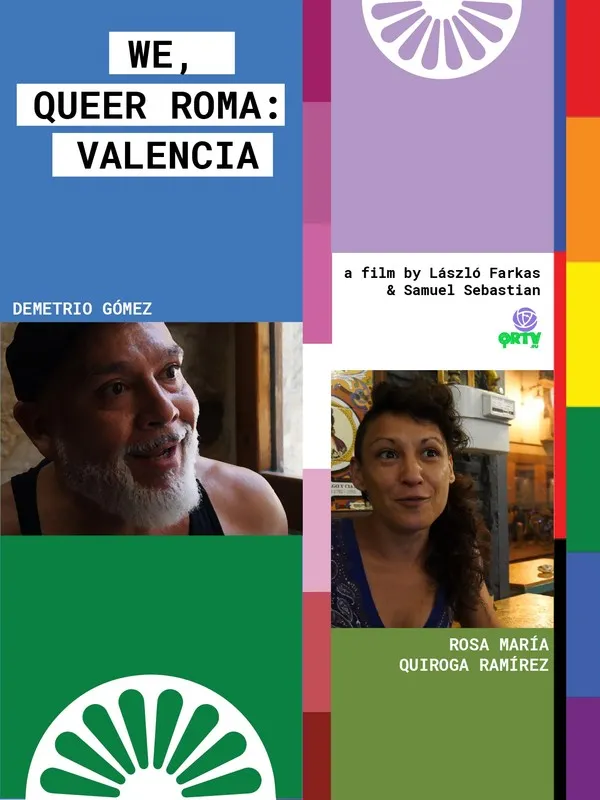
“I don’t want to choose between being gay or Roma.”
We, Queer Roma: Valencia, created by László Farkas and Samuel Sebastian, introduces us to Spanish Romani activists Demetrio Gómez and Rosa María Quiroga Ramírez who are fighting discrimination at the intersections of LGBTQI and Romani rights in Valencia. Through interviews and footage of Valencia’s Critical Pride Parade – created in opposition to the way Valencia’s mainstream Pride Parade has become corporatized – the activists share their experiences navigating their communities, but also dispelling myths about whether Romani communities are culturally more conservative and homophobic. Instead, they articulate an understanding of the patriarchy, misogyny, homophobia, and transphobia that structures all of our societies, and they highlight the anti-Roma racism that is perpetuated by such myths.
László Farkas, a Hungarian Romani media producer, DJ, and activist himself, created the film as part of his other project QRTV, a channel for queer Romani artists and activists. “QR is our abbreviation for QueeR*, because our content highly features queer and LGBTQI cultures and people (as a less-represented group in the mainstream media),” reads the website’s bio. “The abbreviation QR also refers to a multi-marginalized group of Europe, Queer Roma, broadly speaking, to the Roma LGBTQI people to whom we ourselves, the initiators, belong or are connected. QRTV is a TV Channel with queer Roma identity.”
We, Queer Roma: Valencia
“Resistance is our birthright: we carry the lessons of Cooper’s, Stonewall, Compton’s, and the many strategies that continue to give us hope and life.”
A Trans History: Time Marches Forward and So Do We, written by Chase Strangio and Zachary Drucker, narrated by Laverne Cox, and illustrated by Molly Crabapple, uses four minutes to depict and contextualize the history of protest and leadership by Black and brown trans activists in the United States from the 1960s through to now.
The film uses an incredible and beautiful visual conceit – it is entirely a sped-up version of Crabapple depicting the film’s events and characters through watercolor and painting. The film’s very conception was political: created in collaboration with the ACLU to highlight the violence, murder, discrimination and oppression trans folks still face, it also grounds those struggles in the ways that trans folks are fighting back.
A Trans History: Time Marches Forward and So Do We
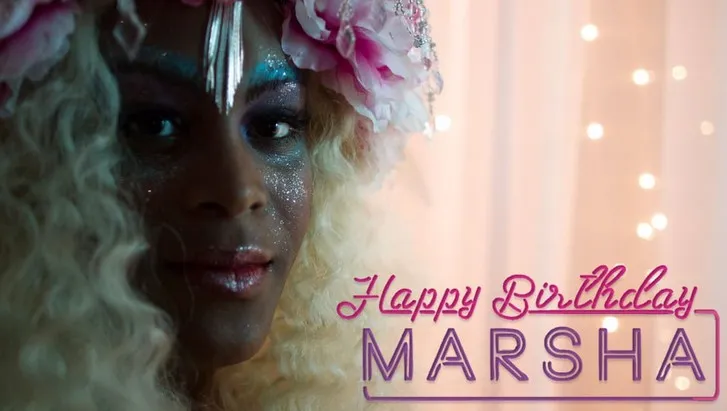
“I’m just in this world for the party. After the party’s over, I’ll be gone.”
I had heard about Happy Birthday, Marsha! long before I got a chance to watch it. The crowdfunding campaign for the film was active around the same time the feature film Stonewall (2015) was released and drawing criticism for its reimagining of the 1969 Stonewall riots as being led largely by cis white gay people. Happy Birthday, Marsha!, written and co-directed by Tourmaline and Sasha Wortzel, also has its ahistorical moments, but not in any ways create a harmful narrative like Stonewall: the film is a stylized depiction of the life of Black trans activist and street queen Marsha P. Johnson on the day that the Stonewall riots begin, with appearances from her close friend and co-revolutionary Sylvia Rivera. The film depicts not only the transphobic and homophobic police violence that set off the riots, but also the discrimination towards trans people by cis gay communities, including at the Stonewall Inn.
Tourmaline, a Black trans artist, activist, and filmmaker herself, was the right person to bring this film to life: during her time working at the Sylvia Rivera Law Project in the early 2010s, she created a digital archive of videos and writing of Rivera and Johnson to illuminate and uplift their roles in trans history, including their co-founding of the Street Transvestite Action Revolutionaries (S.T.A.R) and Johnson’s involvement in AIDS activism with ACT UP. The film itself cuts between its narrative fiction (where Johnson is played by Mya Taylor) and real footage of Johnson in the early 1990s, just before she died a suspicious death that many of her close friends think was murder.
“We represent two different time periods, with high-production-value shots recreating 1969 and low-resolution VHS archival material from the early 1990s, which are edited really beautifully but often are not completely coherent,” said Tourmaline and Wortzel to Art Forum. “There’s a kind of inconsistency in having two different Marshas. We are offering that as a form of disabled beauty, an aesthetic of movie magic that pushes back against an idea that you have to keep it all together. Because we know that Marsha didn’t have it all together a lot of the time, and actually that was a part of her beauty. You don’t have to have it all together to have tremendous impact on the world. In part, what we learn from Marsha is that not having it all together can be its own form of beauty and power.”
To hear more about the film from Tourmaline and Wortzel, watch this interview with Janet Mock.
Happy Birthday, Marsha!
STOP READING NOW TO AVOID CONTENT NOTES
نصف حياة | Half a Life: homophobic police violence (beating, assault) and rape, blood, police and military violence during protests, gun violence, homophobic slurs, stuttering lights
We, Queer Roma: Valencia: discussion of homophobia and anti-Romani discrimination
A Trans History: Time Marches Forward and So Do We: discussion of transphobia and the murders of Black and brown trans people
Happy Birthday, Marsha!: transphobia from cis gay community, transphobic slurs, transphobic police violence (choking, assaulting, beating up)

